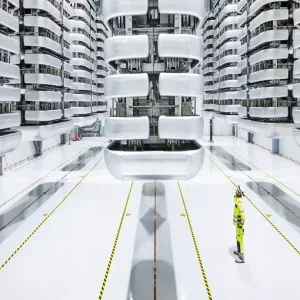
Australia’s Mineral Commodities (MRC) has teamed up with anode materials manufacturer Mitsubishi Chemical (MCC) on graphitic anode materials supply in Europe.
The two have signed a non-binding memorandum of understanding (MOU) for a phased collaboration to explore opportunities related to graphitic anode materials.
Under the phase 1 of the collaboration, the companies will enter into a manufacturing and supply agreement, dubbed ‘Toll Manufacturing Agreement’.
MRC, through its 100% owned Norwegian subsidiary Ascent Graphite, will construct and operate an anode plant in Norway to toll treat graphitic material supplied by MCC.
Also, the company is expected to conduct an engineering design for the anode plant with a final investment decision (FID) anticipated in the third quarter of 2022.
As part of the phase 2 collaboration, the partners will enter a wider business collaboration agreement to produce and sell active anode materials in Europe.
Mineral Commodities CEO and managing director Jacob Deysel said: “Mitsubishi Chemical Corporation have significant experience and expertise in the production, qualification and marketing of anode materials which makes them the perfect collaborative partner to build our European Sustainable Graphitic Anode production strategy.
“With our Phase 1 Toll Manufacturing Agreement, we will gain early entry and invaluable experience in the anode materials supply chain.
“The Phase 2 business collaboration provides the opportunity to leverage MCC’s expertise and our natural graphite operations at Skaland and environmentally sustainable purification technology for Europe’s first vertically integrated ore-to-anode materials business.”
The anode materials will be manufactured using MRC’s purified graphitic materials and MCC’s active anode materials technologies and experience in material qualification, marketing and sales.
MRC’s sustainable natural graphite purification technology eliminates the use pf toxic hydrofluoric acid, to produce natural graphite-based anode material SF-MFG, and SCG.
Also, the technologies will help downstream manufacturers to simplify their processing, and reduce greenhouse gases (GHG) emissions
Furthermore, MCC will also contribute its significant experience in anode materials qualification, marketing and sales under the Phase 2 collaboration.






